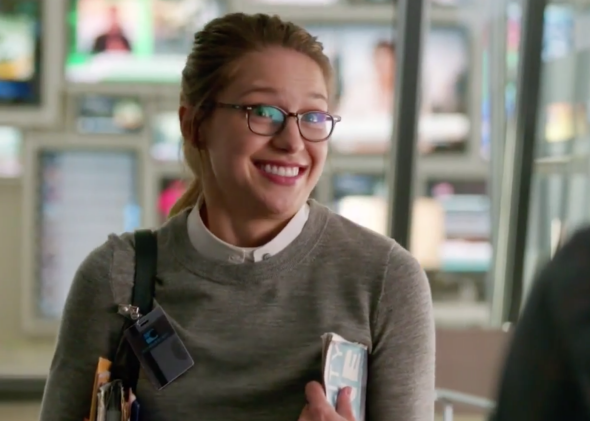“It’s not a bird. It’s not plane. It’s not a man. It’s Supergirl!” proclaims a CBS trailer for its first superhero show. Supergirl has massive potential—both for triumph and failure. And since the six-minute trailer boasts some of rom-com’s most cringe-worthy clichés alongside some credible ass-kicking, it’s hard to tell which way this is going to go.
Supergirl Kara Zor-El came to Earth as a young girl, both in the show and in the popular comics on which it is based. She’s Superman’s cousin, endowed with all of his powers: flight, laser eyes, invulnerability, etc. But, in the show, she apparently wants to live like an ordinary earthling. For the first half of the trailer, she’s a hapless caricature straight out of a rom-com—fetching coffee for her mean boss, getting tongue-tied around cute guys, worrying about what to wear on blind dates. “This,” her sister claims, “is what normal looks like.” Reaction to the trailer has been swift and merciless: Comparisons to SNL’s recent Black Widow: Age of Me sketch have rightly been made.
Kara’s struggle to have it all isn’t entirely in line with the comics the show is based on. In the comics, Kara adopts a secret identity and does good super-deeds in secret while training with Superman to hone her powers. She eventually gets adopted, goes to high school, and begins openly operating as Supergirl after proving to Superman that she’s ready. After college, she has several different careers—and, yes, boyfriends—but her responsibilities as a superhero always come first. In other words, Supergirl from the comics was always kick-ass, whereas TV Supergirl is struggling to figure out who she is while also going on coffee runs.
The trailer isn’t all bad, though. Promising action shots and a few feats of true superheroism suggest maybe the trailer’s introductory nonsense will simply start the pilot, and action will dominate once the show gets its bearings.
One exchange in the trailer is particularly telling: When Kara finds out she’s been dubbed Supergirl in the media, she bristles. “Shouldn’t she be called Superwoman?” she asks her boss, played by Calista Flockhart, who points out that she herself is both a “girl” and accomplished—what’s wrong with being a girl? “If you perceive Supergirl as anything less than excellent, isn’t the real problem you?” her boss asks. This would land better if it didn’t feel more like a preemptive defense of the show itself than of Supergirl’s moniker.
The irksome thing about the Supergirl we see at the trailer’s beginning isn’t that she’s girly—it’s that she’s a reductive, unimaginative interpretation of “girly.” When an invincible woman from another planet, with Superman’s powers, resembles no other character so much as the protagonist of The Devil Wears Prada, that reflects a problem with how Hollywood writes female characters. Noticing this isn’t anti-“girl.” It’s pro-Supergirl. I want this show to work—and for that to happen, Supergirl needs to be more than some tropes with a cape thrown on top. She needs to be super.
